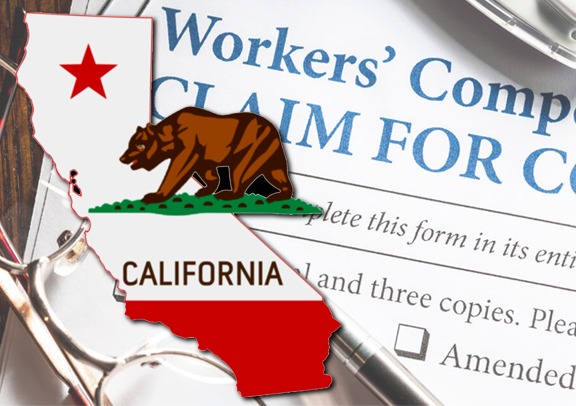Good news for California!
In an effort to stimulate California’s business economy the Commissioner adopts another rate decrease.
“The beneficial effects of Senate Bill 863 continue to impact the system,” said Bill Mudge, president and CEO of the WCIRB. He spoke to Insurance Journal with Dave Belluci, executive vice president and chief actuary for the WCIRB, about the pure premium rates the same day they were filed.
SB 863 was a result of negotiations between labor and businesses, which was signed by Gov. Jerry Brown in 2012. It has garnered mostly praise in the past few years for reducing frictional costs in the state’s massive workers’ comp system.
The WCIRB mid-year filing will propose July 1, 2018 advisory pure premium rates that average $1.80 per $100 of payroll. That is 7.2 percent lower than the insurance commissioner’s approved average Jan. 1, 2018 advisory pure premium rate of $1.94 and 19.0 percent less than the industry average filed pure premium rate as of Jan. 1, 2018 of $2.22.
The proposed July 1, 2018 decrease follows six straight decreases since 2015. If approved, the decrease will result in an average drop of more than 35 percent from the January 1, 2015 advisory pure premium rates, according to the WCIRB.
“It’s a big hit,” Mudge added of SB 863.
The filing submitted on Monday states:
“Since the implementation of Senate Bill No. 863 (SB 863) beginning in 2013, the rate at which indemnity claims are settling has been increasing. We believe SB 863 has accelerated the rate in which claims have settled as a result of quicker medical treatment resolution through the use of independent medical review (IMR), reduction in the volume of liens and a significant decrease in the number of spinal surgeries.”
Changes brought in by SB 863 include the use of evidence-based medicine to guide treatment decisions, treatment dispute settlements by independent medical reviewers, and improving workers’ access to network physicians. SB 863 also created an Independent Medical Review program, in which physicians use evidence to determine the necessity of requested treatments.
Belluci also credited a more recently enacted law and a new drug formulary for part of the reason for the pure premium decrease.
A sharp decline has been reported in lien filings following the implementation of Senate Bill 1160 on Jan. 1, 2017. The new law requires the CDI to automatically stay liens belonging to providers who have been indicted or charged with crimes. The DIR issued a progress report in late March on its anti-fraud efforts, including updates on the suspension of 227 medical providers from treating California’s injured workers and the dismissal of 292,000 illegitimate liens with claims valued at more than $2.5 billion.
Belluci said they anticipated a 10 percent reduction in lien filings as a result of the new law, but it’s had a much more dramatic impact.
“Now that we’re a year into those reforms, we’re seeing about a 40 percent reduction in the number of new liens being filed,” Belluci said, adding that “about a point of the pure premium reduction impact is coming with the reduction of liens.”
Belluci also credited a new formulary for prescription drugs in workers’ comp that’s creating more efficiency and putting California on par with only a few states that are starting to recognize the value they bring to the workers’ comp system.
“It’s a pretty significant change for the workers’ comp system,” he said.
Estimates are that the new formulary will reduce pharmacy costs by roughly 10 percent, which equates to roughly half-a-point reduction in the WCRIB’s pure premium recommendation.
The governing committee’s decision was based on the WCIRB actuarial committee’s analysis of insurer loss and loss adjustment experience as of Dec. 31, 2017.
By Don Jergler | April 9, 2018
Join the Conversation on Linkedin | About PEO Compass
The PEO Compass is a friendly convergence of professionals and friends in the PEO industry sharing insights, ideas and intelligence to make us all better.
All writers specialize in Professional Employer Organization (PEO) business services such as Workers Compensation, Mergers & Acquisitions, Data Management, Employment Practices Liability (EPLI), Cyber Liability Insurance, Health Insurance, Occupational Accident Insurance, Business Insurance, Client Company, Casualty Insurance, Disability Insurance and more.
To contact a PEO expert, please visit Libertate Insurance Services, LLC and RiskMD.
